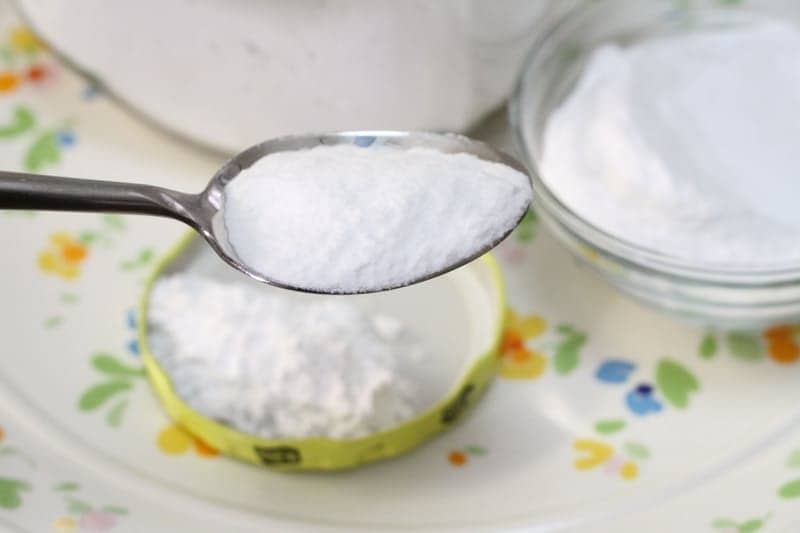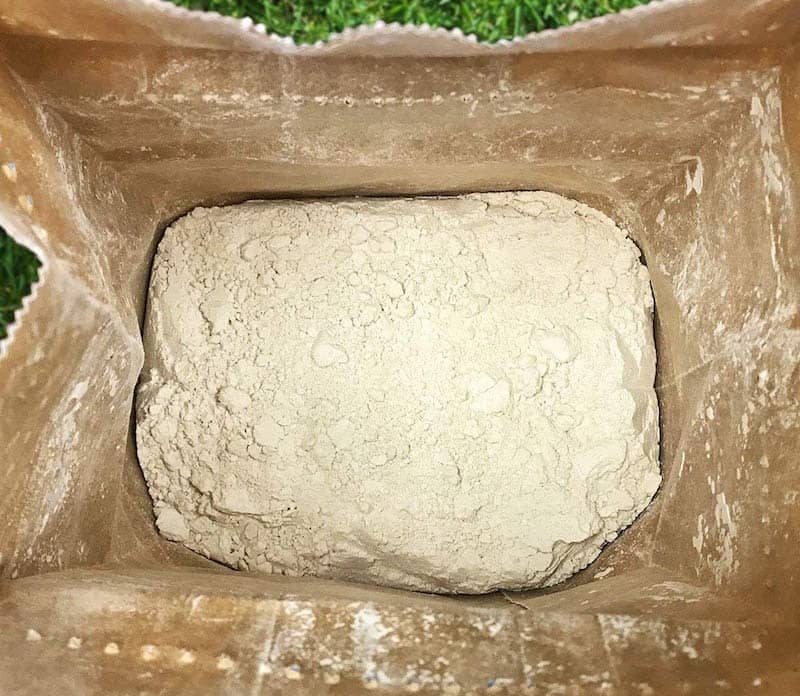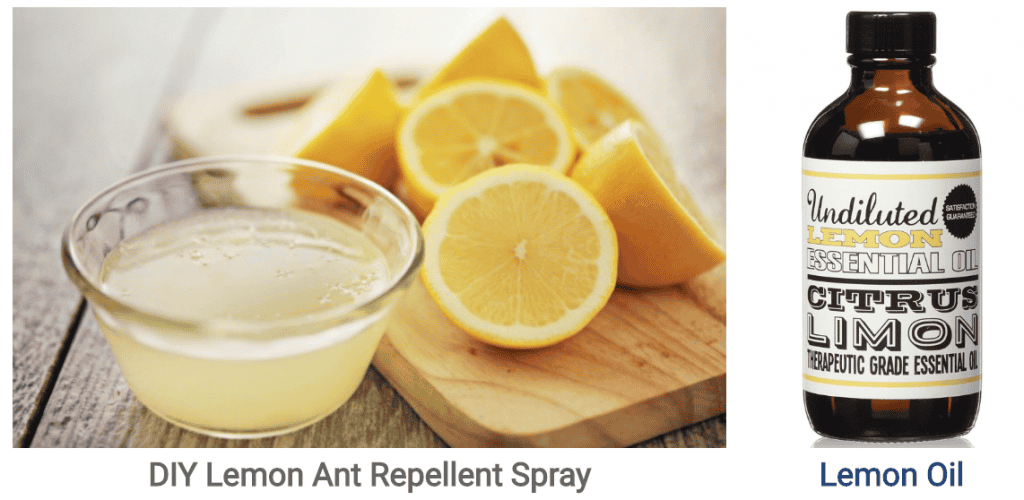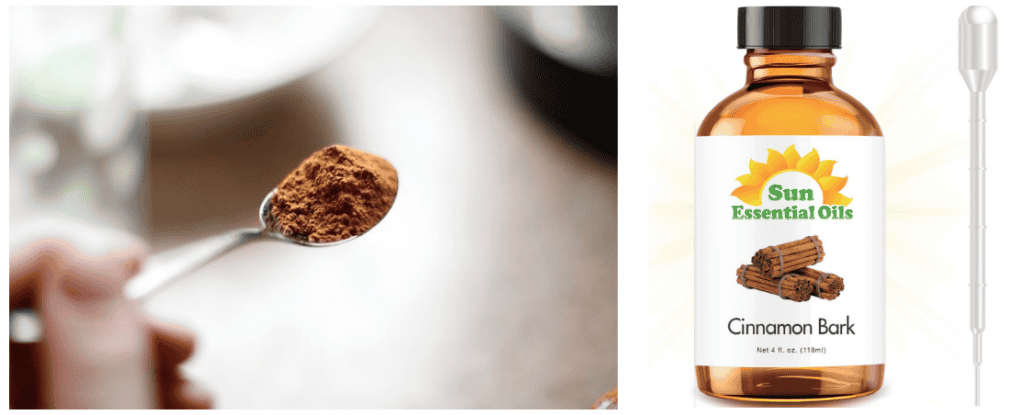You want to know how to get rid of ants naturally. Lucky for you – there are a handful of highly effective and all natural ant killers that you will feel safe using around your loved ones.
Because everyone has a different level of tolerance for pests. Some people don’t mind too much when they find they have six-legged freeloaders taking up space in their home.
On the other end of the spectrum, there are those who are ready to burn the house down and never look back at the first sight of an insect.
And you know what? As insane as that reaction might be, you can’t argue with its effectiveness.
In between those two extremes is where most of us live. No one wants to have pests of any kind in the home, but you have to strike a balance between solving pest problems and keeping your family healthy and well.
Fortunately, when it comes to killing ants, it turns out that not everything is binary digits and harmful manmade toxins.
And if you’re one of the many people out there who prefer the natural toxins over something chemically damaging, you’ve got plenty of options.
Here are the best, most effective natural ant killers.
The Best All Natural Ant Killers
These days, we’re all very worried about what chemicals are going into the food we eat and the soy latte frappuccinos that we drink, so it only makes sense to pay attention to what kind of chemicals you use in your home.
There’s no point getting rid of ants if you’ve made yourself sick in the process.
The trouble with pesticides is that they’re designed to kill.
Of course, you could argue that pesticides don’t kill ants, people do. But they use pesticides to do it.
Unfortunately, pesticides can often have unintended consequences. The same chemical that will kill a thriving ant nest could make you or your family sick.
So if you’re concerned about the adverse effects of the pesticides used to treat an ant problem, don’t worry. There are all natural ant killers out there that are perfectly safe for humans and pets.
And best of all, they actually work.
Borax is an all natural ant killer…
As a naturally occurring salt of boric acid, Borax is both natural and organic. It’s been used forever as a household cleaner, and there was once a time when no grandmother’s pantry would be without this useful product.
But Borax is also an effective stomach poison for ants. So effective, in fact, that it is still used in professional grade ant baits to this day.
To use borax, you may want to mix it with something that will attract ants such as sugar water. Of course, this will make it more attractive to pets too.
One way to get around this is to create a mixture of sugar and borax and soak it up with cotton balls, then place those cotton balls where the ants can find them. Ants are small enough that they can suck the moisture right out of the cotton in a way that a dog is not going to do.
Note: Borax is all natural, sure, but that doesn’t make it harmless. After all, earthquakes occur naturally too, but you don’t want one in your house.
When using borax as your choice of organic ant killer, be careful to keep it out of reach of both pets and children, just as you would with any household cleaner.
So is diatomaceous earth
Don’t worry; diatomaceous earth is easier to use than it is to spell. While this product is generally considered a pesticide, it works differently to any chemical on the market.
Diatomaceous earth is essentially a physical barrier to insects. This fine white powder comes from the crushed-up shells of fossilized sea creatures.
While to the human hand, the powder feels as fine and soft as flour, from an insect’s perspective it’s nothing but razor-sharp edges.
As a result, any insect that crawls over an area where diatomaceous earth has been applied will have its exoskeleton scratched and perforated to the point that it can no longer retain water.
The insect will then dehydrate and die, making this a highly effective, non toxic ant killer.
Just make sure you get food grade diatomaceous earth. This product is made to be used in places that handle food, such as kitchens and food manufacturers.
If someone – i.e., your dog – decides to lick up some of this powder, the diatoms are too small to do it any harm. But they will kill any insects stupid enough to cross it.
Diatomaceous earth can be applied as a powder, or can be mixed with water and sprayed from a spray bottle. Once the water dries, the diatomaceous earth will return to its powder form.
It’s easy to apply and works well to create a barrier inside or outside your home that insects won’t want to cross. It’s not going to kill an active ant colony by itself.
But it will give you some protection against foraging ants coming inside your living space.
Baking soda works in a pinch
While we’re on the topic of powders that ants can’t handle – let’s look at baking soda. Ever wondered why there are no ant bakeries? This is why. This is the only reason why.

Baking soda is a potent natural ant killer – it basically tears the dancehall up when ants ingest it. It damages them from the inside out until the point of death, so kind of like our average weekend diets I suppose.
Obviously, this tip is more geared towards indoor ant infestations or trails rather than exterior problems – out in the open world, they might never stumble across the delicious baking soda-mixed ant baits you set, whereas in the home (or in the gaps and holes where you’ve located them) there’s much greater chance they’ll stumble across the tasty and lethal treat.
That being said, baking powder isn’t particularly appealing or alluring in and of itself, even to ants with their weird diets.
If you mix it in with something nice and tasty, though, such as sugar powder, peanut butter, honey, or syrup then you’ve got yourself a handy DIY, natural ant bait trap. How clever are you?
Beneficial nematodes are your friend
No, I don’t blame you for asking your computer screen “what the hell are nematodes?” If you haven’t had any persistent bug or insect problems in the past, then there’s really no reason that you’d be au fait with these little worms… Well, I say worms… nematodes are actually microscopic parasites that search, restlessly, for a living host to affix themselves to.
Once they latch on, they burrow into the body and consume the creature from the inside out before dusting their microscopic parasitical hands and moving on to the next job.
In this manner, nematodes are an effective way to take the fight to the ants themselves. It may seem a little dirty to target them where they rightfully belong – the great outdoors. But if you have a persistent ant problem that won’t go away no matter how much you do indoors, it may be because you have a bevy of ants that have set up shop just outdoors.
You can buy nematodes from most garden centers, and application tends to be pretty simple: just introduce them into the soil around the area that you’re having problems. Before long, you should notice a drop in the ants’ numbers.
Unless they’re very diplomatic ants and they manage to make friends with the nematodes…Good god.
Boiling water works in a pinch

I’ll be brief with this one, because it’s brought up in just about every ant article under the sun (even those that are concerning manmade chemicals).
It truly is the most natural and basic DIY method of ant extermination, though. All you need is a kettle, water and the sheer, unadulterated bloodlust to pour it into an ant hill or nest.
Now, be warned; this isn’t guaranteed to actually kill off every ant in a given hill and if you use it indoors – say on a small nest, resting in a gap in your wall or something similar – you’re going to be faced with a flurry of ants trying to flee.
Save it for the external ant hives and make sure you use a lot of water.
Vodka makes a strong ant killer

Right, right, right. So I know we’re diving headfirst into grey territory when it comes to what we mean by ‘natural’ now, but you know, if you want to get highly technical about it, vodka comes from potatoes which is bizarre when u thnkl about it dnt you thnk? Rly weerd.
Sorry, I’ve had a few.
Don’t worry, I’m not going to suggest you head out and buy an expensive bottle just to pour it all over the floor, nor do I think you should sit down and share a few glasses with the ants and try to sort the problem out like civilized gentlemen.
Vodka is useful when mixed in with water to create yet another handy, DIY ant killer spray. You’re looking at around a 3:1 ratio of Vodka to water to get some real killing done.
Hey, that leaves a whole ¼ for yourself! What’s not to like? Now give me back that bottle and shut the door on your way out.
How to Get Rid of Ants Naturally
There are a number of all natural ways to get rid of ants. Just keep in mind that not all of them will kill – like the effective ant killers above.
Some of the natural methods to get rid of ants are just that: repellents that serve to deter ants. Here are your best, all-natural ways to get rid of ants. No manmade toxins needed.
Get rid of ants naturally with citrus
We’ll start with a surprisingly obvious/common one: citrus scents and oils are pretty damn effective across the board when it comes to pests and creepy crawlies of all kinds. Different beasties react to the oils and scents in different ways, but for ants, it’s a simple case of utterly confusing them.
Ants rely heavily on their sense of smell for a general awareness of the environment around them – this is why they can locate a Twinkie crumb from about ten thousand miles away. These figures might not be accurate. But, anecdotally, I can claim that I’ve seen it happen.
Powerful citric scents and flavorings bamboozle the ants’ senses; they become overwhelmed to the point of basically having no idea what’s going on. A lemon essential oil, for example, is a great way to keep them away from your food!
Use orange oil as a natural ant spray
This is basically a continuation of the previous step, but orange oil warrants its own number on the list due to how effective and powerful it is in the pest repelling/killing world. Really, when I say orange oil, I’m referring to the compound Limonene (which is more or less 99% orange rind).
Now, it’s up to you how you use this substance, but it can be a very effective natural ant killer if mixed in a powerful enough ratio with water. If you want to dilute it down and make it last a little longer, though, it can become a very handy repellent for spraying around suspect areas of the garden or home.
There are a number of ways to use orange oil or other citrus scents: go for a straight up potent d-limonene extract, citrus-y essential oils you can mix with water and spray around your kitchen or get a pre-made spray like Orange Guard, which is made with d-limonene (extracted from orange peels) and works both to kill ants on contact and repel them.
Vinegar repels ants naturally

What goes well with oranges? Mmmm… vinegar. Yummy, bitter, tangy, vinegary oranges. What’s not to love?
Alright, maybe keep it separate, because vinegar on its own is actually a very potent and effective natural ant repellent. For a repelling factor, vinegar (in any of its forms; white wine, apple cider, wrung out from last night’s chip wrapper) works in the same way as the overwhelming citric essences: by screwing with the ants’ antennae and ability to detect pheromones in the air.
This makes it a handy, if pungent, preventative measure. However, if you’re using pure vinegar and you manage to catch the ants ‘in person’ so to speak, then it can kill them off. You need to make sure you’re making direct contact, though. That’s when it makes a lethal all natural ant killer.
Essential oils ward off ants

You know all of those mad smells, tinctures and scented candles that seem to haunt your grandmother’s home? Most of those are essential oils and, believe it or not, they’re one of the most useful weapons in the natural war against ants and all manner of horrible, horrible things with too many limbs and not enough perpetual distance from me.
Essential oils allow you to get quite creative with your repelling and killing techniques – you can opt for the oils themselves and add to water for homemade, natural sprays, or you could use dried leaves for a physical, stinky, barrier in particular areas of the home or you could even burn one of those sacred scented candles that you were always told never to actually light.
The choice is yours; and the choice is about as wide as the essential oil roster goes, but some key players are peppermint, tea tree, cloves, eucalyptus, lemongrass, and citronella. Basically, choose the one you most like the smell of (because you’re going to have to put up with a lot of it) and get experimenting!
Insect repellent plants

If your ant problems exist mainly outside the home, in the wonders of your own backyard then you might want to think about a little bit of creative landscaping. People often forget that the natural essential oils have their smells, potency and repelling effectiveness ingrained in them – it’s not some manmade alteration that gives them their smell.
With that in mind, why not put some of the actual plant life in your own yard?
Again, this is really just down to your own discretion and taste: you can turn your garden into a veritable botanical wonderland, or just stick a citronella shrub by the back door to make sure nothing sneaks in when nobody’s looking. It’s up to you – but you’ll have a much nicer smelling yard, hopefully ant-free.
Cinnamon to prevent ants naturally
Remember that ‘cinnamon’ challenge that was doing the rounds a few years ago? The one that came with all the health warnings about basically violently choking and dying on a spoonful of spice for the adulation of internet users?
Yeah, well, the same risks apply for ants, too.
I wrote that as a joke, but it’s actually more or less true. The powdered form of the cinnamon can easily suffocate any ants trampling through a big pile of it – the same actually applies to a lot of other strong spices and powders like coffee, cayenne or turmeric. Maybe they just like their food unseasoned…
Again, though, even if the ant itself doesn’t come into contact with the cinnamon or whichever spice you’ve opted for – the powerful scent will help to confuse them and keep them away for the most part.
There we are – 12 highly effective, natural ways to get rid of ants. Not to mention, many of these are really cheap alternatives to chemical options to kick those horrible ants out of your neighborhood, yard or even your own home.
As you can see, it’s possible to get ants out of your house without poisoning yourself, your family or your pets. A strongly worded letter probably isn’t going to deter them.
But these natural ant killing solutions should do the job.








Thank you for your information! I have found that taking an egg and beating/whisking it and adding a small amount of boric acid to the mixture works well also, I keep the broken shell and pour the mixture into the shell and place it at an ant trail and they eat it up. I had killed small black ants and large red ants this way as well as their colony.